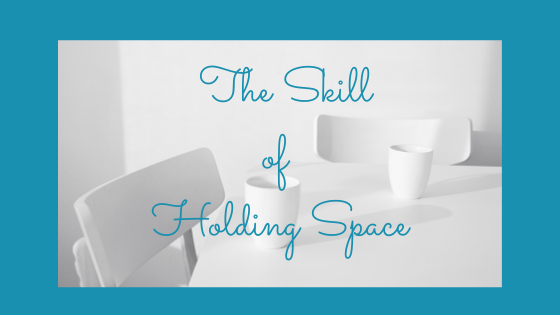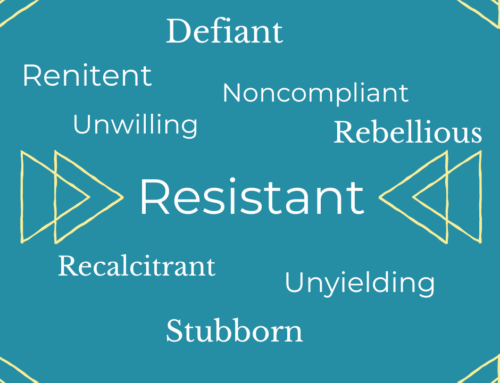The skill of holding space for your anorexic teen means that they can have any thought or feeling, no matter what it is, and you will not judge them. I can say from experience that holding space for my daughter when she was restricting food did not come naturally. What I discovered is that once I learned to hold space for her, I was able to support her recovery from a much better place.
One of the first things I learned as a life coach is the concept of “holding space.” When I hold space for my clients that means they can come to me with anything, and I will not judge them. My personal opinion is not relevant.
It is an idea that is easy to grasp intellectually, but it can be challenging to apply. With practice, it becomes a skill. I have come to appreciate the importance of holding space more and more as I’ve learned to both give it and receive it.
Holding space isn’t intuitive for most of us. In fact, it’s different than what we are generally conditioned to do. It’s human nature to judge. We automatically create opinions. We immediately want to offer solutions. So holding space means not doing what most of us naturally do.
The concept of holding space is something I’ve been thinking a lot about lately. As a life coach, I was trained to hold space for my clients. I learned to hold space for them without judgment. But, as the mom of an anorexic teen, learning to hold space for my daughter required a lot more practice. At first it wasn’t easy to be present for my daughter without my emotions interfering.
I remember the urgency I felt to help my daughter when she was struggling to eat. Holding space became crucial for me when my daughter’s anorexia made me feel powerless as a mom. My fear plus her fear compounded to create a collective fear that kept us from responding in ways that were useful to us.
The fundamental concept of holding space allowed me to figure things out when I was panicking about my teen’s anorexia.
First, I held space for myself. I learned to witness my thoughts and feelings about my daughter’s anorexia (no matter how negative) without judging myself.
Second, I held space for my daughter. I learned to be present for my daughter without trying to fix her, and without letting my emotions get in the way.
Learning to Hold Space
“Holding space” means being present without judgment. It means giving someone a place to show their emotions without an agenda. When you hold space for someone, your own beliefs and feelings don’t interfere.
When you hold space, you not only listen, you hear.
The skill of holding space involves allowing any thought or feeling to be shared in an unconditional environment.
Holding space is different from empathy. It requires remaining neutral. Holding space means not automatically jumping to conclusions. It means not trying to solve the problems that are being presented. Holding space means not agreeing or disagreeing.
The goal of holding space is to understand.
When you hold space for someone, you provide them with a safe place to share what is on their minds and in their hearts. They are free to express themselves without condition.
The skill of holding space is not something that comes naturally, but it is something we can learn. To effectively hold space for someone, we need to be aware of our emotions. We have to learn to notice our feelings without reacting. This doesn’t mean becoming disconnected from our feelings. It doesn’t mean not having feelings. It means providing a safe place for someone to allow their thoughts to be heard even if you don’t agree with them.
Because of the impact anorexia has had on our family, the skill of holding space has taken on a new significance for me. I wonder how different our collective experience of anorexia and other eating disorders would be if all of us practiced holding the space for ourselves and for each other.
If you could witness your thoughts and feelings about anorexia without judgment, what would that change for you?
If you held space for your friends, family members, and treatment professionals that have thoughts and feelings about anorexia that aren’t the same as yours, what would be different for you?
In the context of parenting an anorexic teen, holding space gives you a chance to understand what your child is experiencing without immediately reacting. As you navigate the challenges of treatment, holding space gives you the freedom to seek understanding without immediately leaping to judgment.
Holding space is a skill worth learning.
It is an art worth evolving.
Holding space is respect for our humanness.
I’d love to help you develop the skill of holding space as you care for your anorexic teen. To learn more, schedule a free coaching call with me by clicking on Free Consultation, or email me at jenni@peacemealcoach.com.






